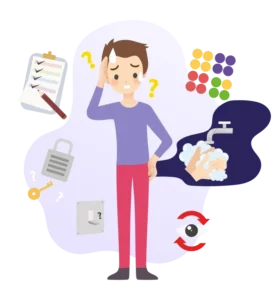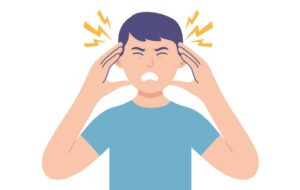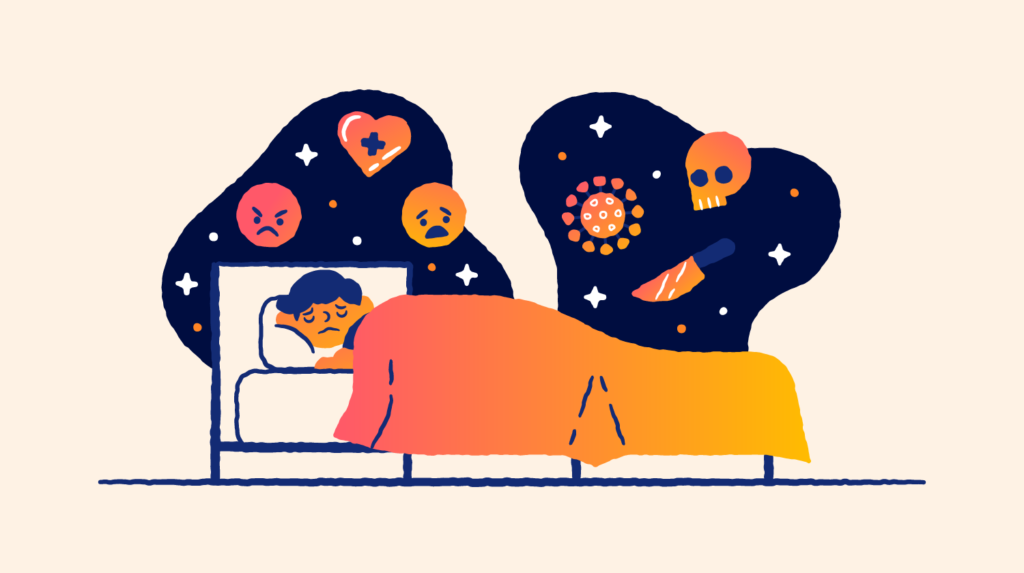Do you ever have dreams about being OCD? If so, what do they mean? In this blog post, we will discuss the meaning of OCD dreams and how to deal with them. Dreams are a way for our subconscious minds to communicate with us. They can offer us insight into our thoughts and feelings, as well as give us information about our lives that we may be unaware of. If you are struggling with OCD, your dreams may offer some valuable clues to the root of your problem.
Contents
What Are OCD Dreams?

OCD dreams are those that are repetitive, intrusive, and often anxiety-provoking. They may involve themes of contamination, harm, or losing control. You may dream that you are unable to stop washing your hands or that you are going to hurt someone. These dreams can be so real and vivid that they may cause you to wake up feeling anxious and stressed.
They are often triggered by our fears and worries. If we are obsessing about something during the day, we will likely dream about it at night. OCD dreams can be a way for our subconscious to work through our fears and anxieties.
What Do OCD Dreams Indicate?
There is no one answer to this question as the meaning of an OCD dream will vary from person to person. However, some common themes may offer insight into what your OCD dreams are trying to tell you.
OCD dreams can also have one of two meanings. They either reflect our current obsessions and anxiety, or they reveal hidden aspects of ourselves that we are afraid to face. If you are dreaming about your current obsessions, it may be a sign that you are not healthily dealing with them. Dreams can also be a way for us to process traumas or difficult experiences from the past. If you have experienced trauma, you may find that you are re-experiencing it in your dreams. This can be a way for your subconscious to work through the trauma and begin to heal.
Causes Of OCD Dreams

Several different factors can contribute to the development of OCD dreams. Anxiety and stress are two of the most common triggers. If you are struggling with OCD, your anxiety levels may be high during the day, which can lead to increased anxiety at night and result in OCD dreams. Other potential causes include trauma, medications, and sleep disorders. It can also be helpful to keep a dream journal to track any patterns or themes that emerge.
Some Common OCD Dreams And Their Meanings
Now that we have discussed what OCD dreams are and some of the potential causes, let’s take a look at some of the most common types of OCD dreams and their meanings.
- Falling: This dream may symbolize a fear of losing control.
- Being Chased: This dream may be indicative of feelings of anxiety or insecurity.
- Not Being Able to Move: This dream may represent feelings of powerlessness or helplessness.
- Losing Something Important: This dream may symbolize a fear of losing control over your OCD or your life in general.
- Dying: This dream may symbolize a fear of death or mortality.
- Contamination: These dreams may be symbolic of your fear of contracting a disease or becoming dirty. They may also indicate a need for self-care or a desire to be clean.
- Harming others: These dreams may be indicative of feelings of guilt or self-loathing. They may also symbolize a fear of losing control over your OCD or your life in general.
- Losing control: These dreams may symbolize a fear of losing control over your OCD or your life in general. They may also indicate a need for help or support.
As you can see, the meaning of an OCD dream will vary depending on the individual and the specific content of the dream. However, some common themes often emerge. some common themes often emerge If you are struggling with OCD, pay attention to your dreams as they may offer some valuable insight into your thoughts and feelings.
If you are struggling with OCD, your dreams may offer some valuable clues to the root of your problem. If you have recurrent OCD dreams, it may be helpful to keep a dream journal to track any patterns or themes that emerge. Remember, there is no one-size-fits-all answer to this question, but understanding the meaning of your OCD dreams can be a helpful step in managing your condition.
Side Effects

While there is no one-size-fits-all answer to this question, understanding the meaning of your OCD dreams can be a helpful step in managing your condition. In some cases, people with OCD may experience side effects from their dreams, such as anxiety, insomnia, or nightmares. It may also result in difficulty concentrating during the day. If you are struggling with any of these side effects, it is important to seek professional help. A therapist can assist you in exploring the meaning of your dreams and help you develop healthy coping mechanisms.
Dealing With OCD Dreams
Fortunately, there are various helpful ways and methods of minimizing the effects of these dreams on your daily life.
Therapy
It can be an effective treatment for OCD dreams. If you are struggling with recurrent OCD dreams, a therapist can help you understand the meaning of your dreams and develop healthy coping mechanisms. In some cases, medication may also be prescribed to help manage anxiety or other symptoms associated with OCD. If you are struggling with OCD, it is important to seek professional help to ensure that you receive the most effective treatment possible.
It is noted that people with insomnia or anxiety may also have interlinking with OCD dreams. Working on managing these conditions can also help in reducing and forming better coping mechanisms.
Therapy can help you to understand and manage OCD dreams. If you are struggling with recurrent OCD dreams, a therapist can help you understand the meaning of your dreams and develop healthy coping mechanisms. Some common therapy techniques used in OCD are:
Cognitive Behavioral Therapy
This type of therapy focuses on changing the negative thoughts and behaviors that are associated with OCD.
Exposure and Response Prevention
This type of therapy involves gradually exposing yourself to your fears and anxiety-provoking situations while learning to control your urge to perform compulsions.
Psychotherapy
This type of therapy can help you to understand the thoughts and emotions that are associated with OCD.
Support Groups
There are many support groups available for people struggling with OCD. These groups can provide valuable social support and information about resources and treatments.
In some cases, medication may also be prescribed to help manage anxiety or other symptoms associated with OCD. It is important to stay in regular contact with your doctor to measure the efficacy, side effects, as well as benefits of medication on the medication.
Self-Care
In addition to therapy, self-care is also essential.
There are many things you can do to take care of yourself and minimize the impact of OCD on your life. Some self-care tips include:
- Identifying and challenging negative thoughts and beliefs.
- Practicing relaxation techniques such as deep breathing, grounding, or mindfulness meditation.
- Getting regular exercise and maintaining a healthy diet
- Maintaining a dream journal
- Getting sufficient sleep and managing stress levels.
- Avoiding alcohol and drugs.
A Word From MantraCare
If you have any queries regarding Online OCD Counseling experienced therapists at MantraCare can help: Book a trial OCD therapy session


